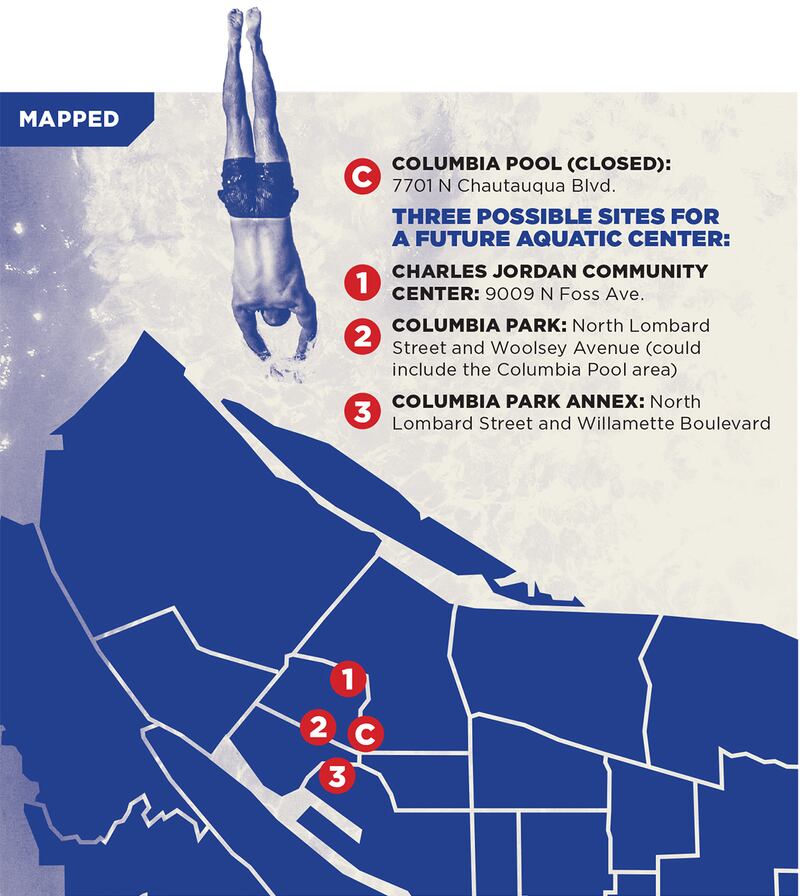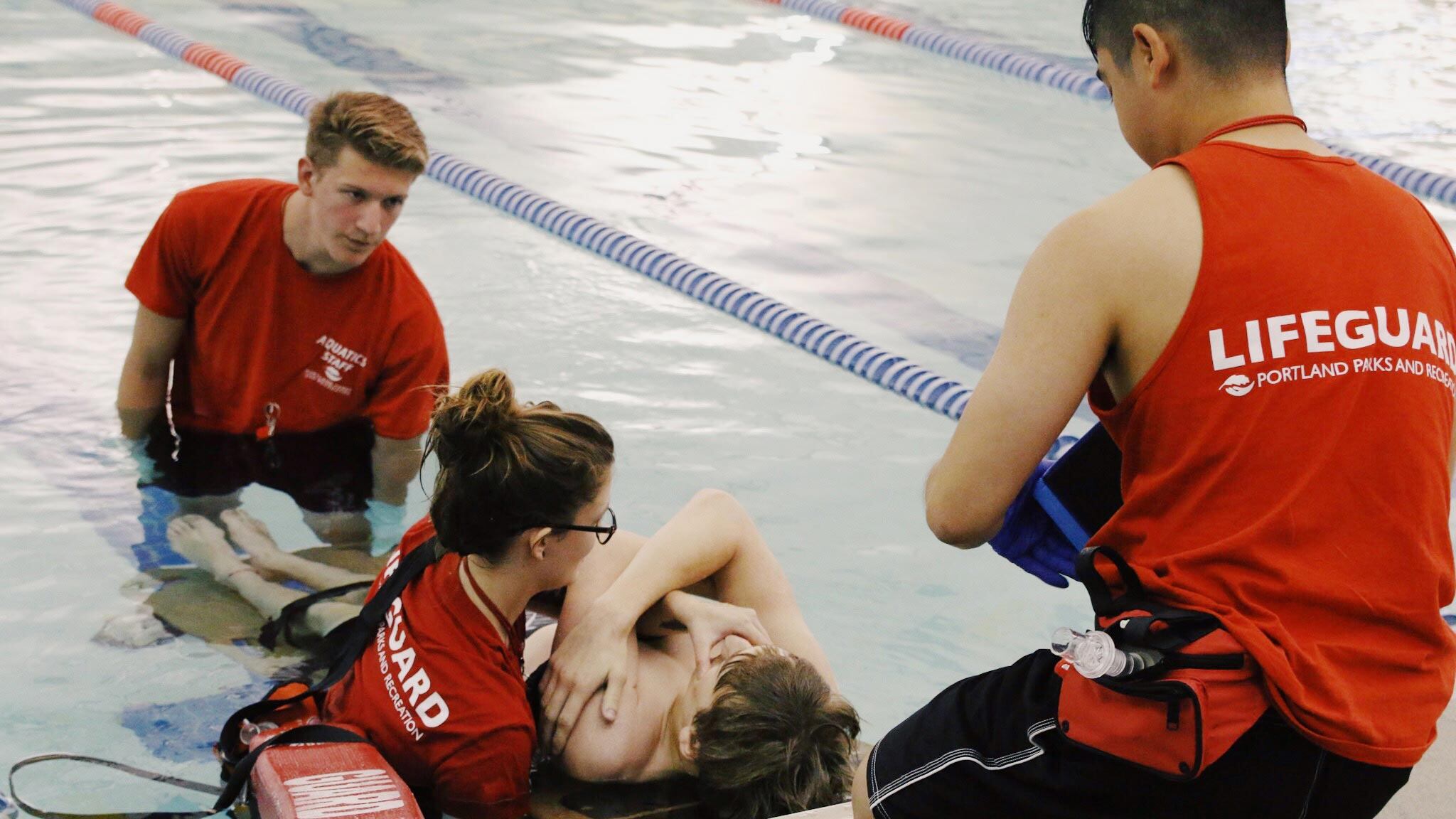For nearly three years, residents of North Portland’s Portsmouth neighborhood have been promised a massive aquatic center to replace their shuttered indoor pool. But they want something else: their old pool back.
The Columbia Pool closed in 2019, amid a budget shortfall that kneecapped the Portland parks system, and was kept shut this spring after an inspection determined the building was unsafe for occupancy.
Now the fate of that pool is giving City Hall a headache.
A flurry of lively discussion surrounded City Hall’s passage Nov. 17 of its latest surplus budget, with major allocations going to bolster police staffing, add behavioral and mental health resources, and increase dollars for homeless camp sweeps.
But a comparatively small line item is stirring its own debate after the budget’s passage: $1.5 million for Portland Parks & Recreation to increase access to swimming pools for North Portlanders who don’t live near one. That could include busing children to pools in other neighborhoods, say city officials.
Some residents and advocates for recreational access in the Portsmouth neighborhood want the city instead to use some of that money to reinspect the Columbia Pool—and appraise the cost of making it safe. Needed repairs are estimated at $5 to $10 million.
“All of our local governments have these budget surpluses,” says Mary-Margaret Wheeler-Weber, president of the Portsmouth Neighborhood Association. “It was one thing to be told, ‘We’re going to close your pool because we have to lay off a huge number of staff.’ Well, that sucked and it was a hard pill to swallow. But it’s a much harder pill to swallow when it’s like, ‘We have all this money.’”
The parks bureau tells WW it’s not that simple. In fact, Portland Parks & Recreation has at least $500 million worth of deferred maintenance across its facilities—and one shuttered pool can’t cut the line.
“Portland Parks & Recreation does not have the direction or the $5 to $10 million (or more) to move forward with a temporary fix of Columbia Pool,” bureau spokesman Mark Ross says. “Columbia Pool is nearing the end of its useful life. The bureau has monitored whether the building is safe for years, and was forced to close the pool when life safety hazards related to the roof and skylight were discovered.”
The closure and opening of public pools has always been one of the city’s most combustible issues during Portland budget season. But it takes on greater stakes as Portland experiences catastrophic climate events like last summer’s heat dome, making pools an even more valued civic resource.
The budget item is largely meant as a stopgap measure to provide pool access while the city embarks on a long-term project to build a massive aquatic center in North Portland. This spring, City Commissioner Carmen Rubio announced an $11.7 million allocation from parks system development charges to build that center in the coming years.
The North Portland aquatic center will likely take more than five years to complete, and still needs to secure additional funding, possibly from bonds and local tax revenues. (It’s tagged as a $35 million project.)
Rachel Burdon, president of Friends of Columbia Park, says the parks bureau or Rubio could use $400,000 of the $1.5 million to do a full inspection of the old pool. “Any decision maker can decide to reallocate funds how they need to,” Burdon says. North Portland is more diverse, she adds, and therefore “deserves a little more attention than another part of town.”
In a Dec. 6 meeting with Portsmouth neighbors, Rubio and the parks bureau resisted the idea of dedicating a third of the budget item to restoring Columbia Pool, saying the dollars were not meant to be used for inspections or repairs. But Rubio isn’t firmly saying no just yet.
“I want to hear from community members their thoughts on the very real choices before us regarding Columbia Pool, a new aquatics center—and what we can do now to get people of all ages access to aquatics activities,” she tells WW.
Rubio did unveil three possible sites for the future aquatic center. Here’s where they are, in relation to the pool that residents want back.


